Iolanthe
Information
- Date
- 2nd March 2023
- Society
- KASJOG (Knaphill & St Johns Operatic Group)
- Venue
- The Rhoda McGaw Theatre, Woking
- Type of Production
- Musical
- Director
- Val Hitchcock and Kevin Chapman
- Musical Director
- David Chapman
Iolanthe was premiered at the Savoy Theatre in November 1882, just three nights after the final performance of Patience there, and ran for 398 performances. The Savoy had recently been kitted out with electricity – the first public building to be lit this way. The fairies were given an electric star in their hair, which must have been an amazing and exciting sight. Some think this was the origin of the expression ‘fairy lights’.
The production tells of the clever fairies outwitting the stuffy and not too bright peers of the realm. It discusses the perennial issue of ‘what to do about the House of Lords’. Though the world has changed enormously since the first production, Gilbert’s words are still appropriate, and of course exceedingly amusing.
The Rhoda McGaw Theatre has a roomy auditorium, is very well equipped, and has a large stage. The KASJOG front of house team always offer a warm and friendly welcome.
We were offered a well-designed, well-illustrated and comprehensive programme, which definitely enhanced the audience’s enjoyment of the show. There was an interesting history of the society, a list of previous productions, a good synopsis, the always useful list of musical numbers, and a piece on the opera itself and the satire involved. Interesting cast and director profiles were included. It was especially nice to see profiles of the 2 rehearsal pianists. A glossary of terms used in the over 140-year-old work was also present.
The curtain opened onto the fairy glade with its stream and rustic bridge, which was extremely attractive, making one want to go for a relaxing stroll. The Houses of Parliament backdrop, with Private Willis’s sentry box was also striking, and set off those odd Lords to perfection. The set was evocatively and effectively lit, all very magical and atmospheric.
The fairies’ costumes were very vivid, with a glorious array of colourful layers, and an amazing number of different colours of tights. They sported flowery headdresses and wands. The Fairy Queen looked particularly resplendent in sparkly white, with crown and fine starry wand. Iolanthe emerged from the stream suitably besmirched with mud. The peers were splendidly attired in their long velvet robes and coronets. Private Willis cut a dash in his wonderful guard’s uniform – no wonder he caught the attention of the Fairy Queen!
Musical Director David Chapman created some very emotional and balanced small group ensembles, particularly the duets of Phyllis and Strephon, and also Phyllis’s trio with Tolloller and Mountararat. It is a pleasure to have a fine team of musicians playing together so sensitively to accompany the cast. There was a good balance of sound throughout.
The scene was set in the fairies’ evocative fairy glade. At the request of the fairies, Iolanthe was forgiven by the Fairy Queen for the sin of having married a mortal many years before, and so was allowed to emerge from her banishment, which, as she explained, she had chosen to spend at the bottom of the stream, in order to be near her son Strephon, the shepherd. Strephon is enamoured of the beautiful Phyllis, a ward in chancery. He is despondent to discover that he is only half a fairy, due to his mother’s marriage - fortunately the bottom half mortal, top half fairy. Thus far a typically mad and intriguing G and S plot!
Maddy Jones, Anne Crow and Pam Stevens played the fairies Celia, Leila and Fleta with great aplomb, and Sue Prior was excellent as the Fairy Queen with her rich, fine voice and excellent presence. Heather Cartwright, also a fine singer, made a kind, thoughtful, at times despairing Iolanthe, keen to protect her son, and promote his happiness with Phyllis. Phyllis was fresh, lively and pretty, and Giselle Thorne acted the part and sang beautifully.
Strephon was played very well by Ivan Cosmai, whose excellent tenor voice further enriched this performance.
KASJOG’s other gentlemen provided the satire and jollity of this work. Keith Kimnell gave us an excellent and convincing performance as Lord Chancellor, with his ‘When I went to the bar’ being up there with the best. The super partnership of Kevin Chapman and Michael Crow, kings of the nifty footwork, as Lords Tolloller and Mountararat respectively delighted us throughout, but especially when they were so perplexed by Phyllis’s indifference as to which of them she would marry.
Mark Lewis played the wise guardsman Private Willis to perfection, with a marvellous rendering of ‘When all night long a chap remains’ in which he meditated on life in general, and politics in particular, very amusingly.
KASJOG has provided yet again a well-directed G and S production, with an excellent team of players and musicians. They are particularly to be praised for their exceptional delivery of the libretto, which was so clear that every jot of humour could be fully appreciated. An evening of brilliant fun and wonderful singing and music. Thank you, KASJOG.
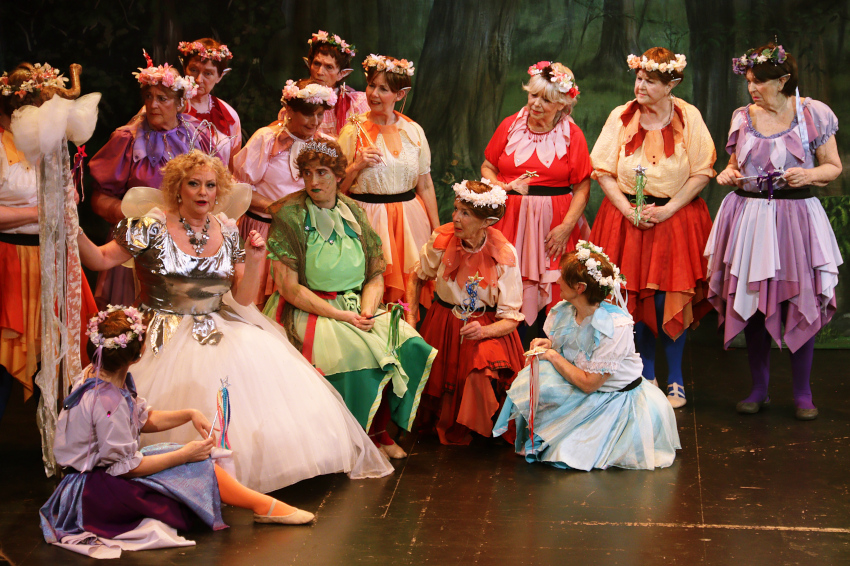 |
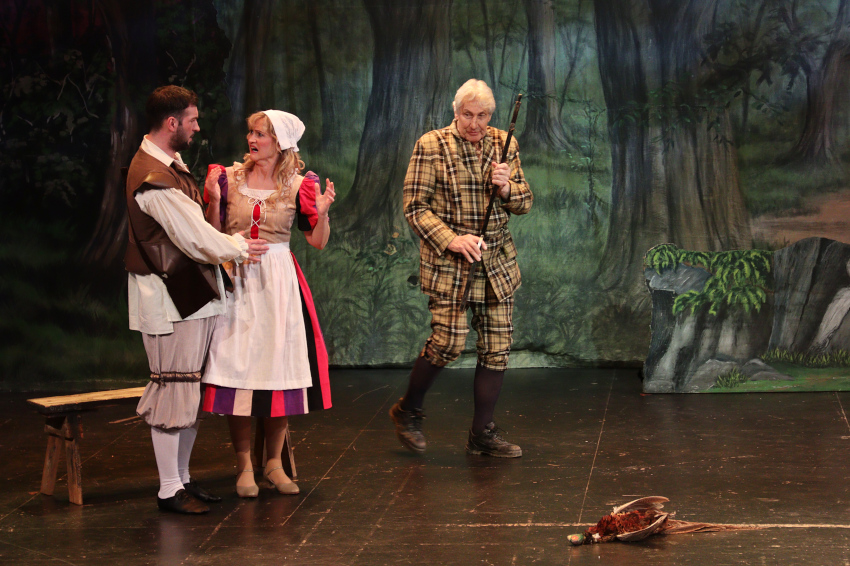 |
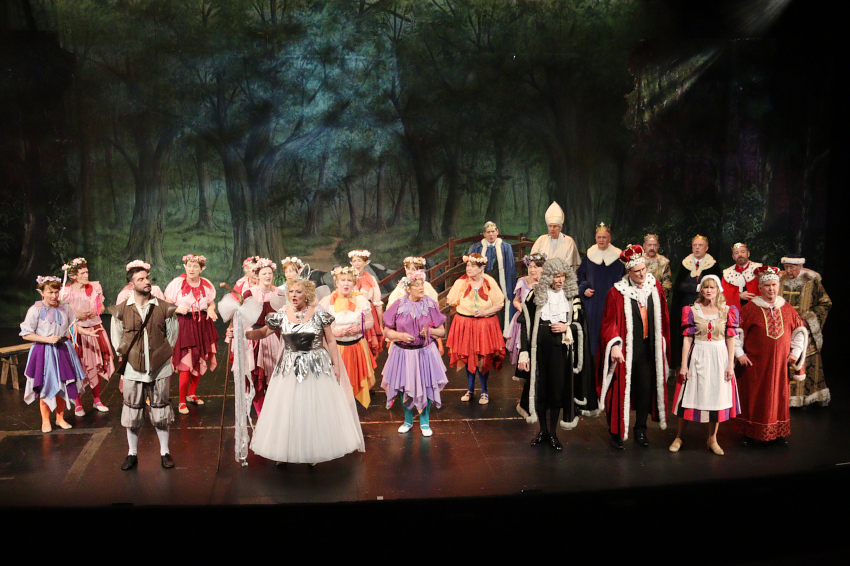 |
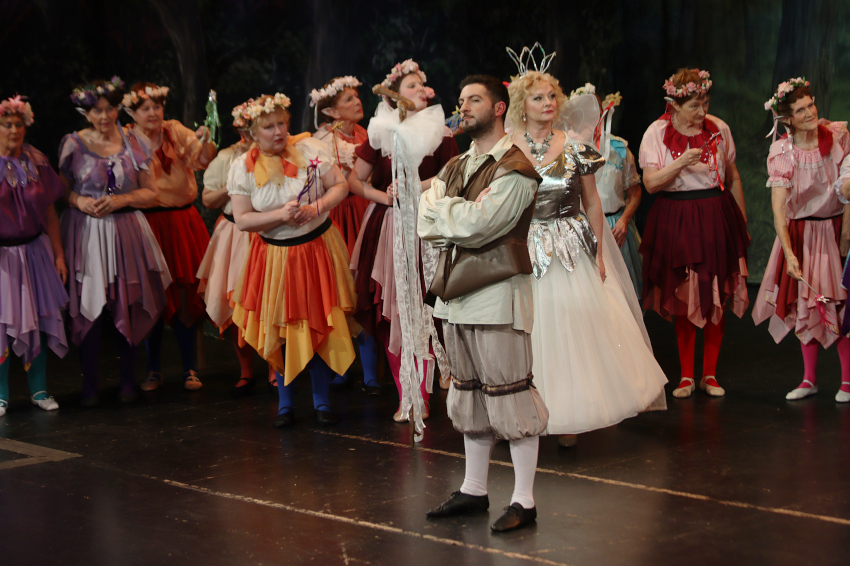 |
 |
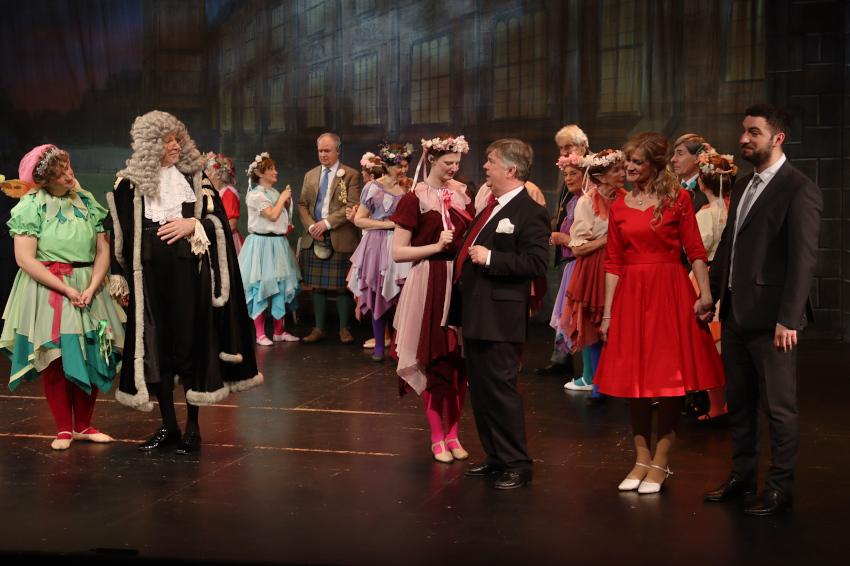 |
© NODA CIO. All rights reserved.

 Show Reports
Iolanthe
Show Reports
Iolanthe